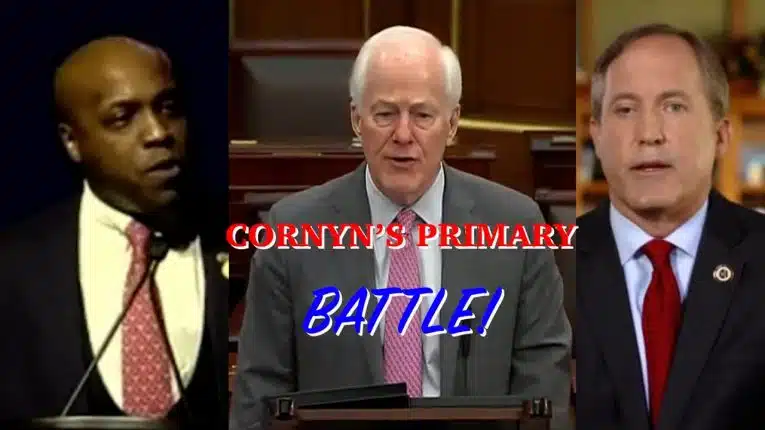By Bill Wilson – Former Speaker of the House Newt Gingrich poured gasoline on his presidential campaign and lit the match when he attacked House Budget Chairman Paul Ryan’s Medicare proposals as “imposing radical change from the right” on NBC’s Meet the Press.
Americans for Limited Government (ALG) Chairman Howard Rich wrote in response that Gingrich’s comments had “sparked a full-fledged uproar — not only among Republican voters who support the Ryan plan, but also among fiscal conservatives who know the Ryan plan doesn’t do enough to address entitlement spending, the root of our nation’s fiscal implosion.”
In other words, the plan was not too radical — it was not radical enough. It would have been one thing if Gingrich was saying the proposal could have done more, but in this case, he was saying that it goes too far.
So, let’s look at it. The House proposal won’t balance the budget any time soon — it will take 26 years. By Chairman Ryan’s own numbers, the proposal will add more than $8 trillion to the gross national debt over 10 years.
It does not address Standard & Poor’s recent downgrade of its outlook on U.S. debt from “stable” to “negative,” the threat that a full downgrade of the nation’s Triple-A credit rating is substantially more likely in the next two years.
That’s because S&P did not shift its outlook until April 18 — after the Ryan budget was already passed by the House on April 15.
Nor does the proposal address the Medicare and Social Security Trustees’ report that the trust funds will run out sooner than anyone thought. So rapidly are the nation’s finances unraveling, that the Trustees have now moved the dates of the trust funds’ exhaustion from 2029 and 2037, respectively, to 2024 and 2035.
The House-passed budget couldn’t have that into account, either, because that report was not released until May 13. So, clearly, the Ryan plan could do more.
To be clear, there are several things about the Ryan proposal that are very good. One of those things happens to be his proposal to begin phasing out the current Medicare system for those 55 and younger. With the program’s trust funds set to be exhausted by 2024 — if not sooner — this reform is absolutely necessary.
It will reduce spending by $5.8 trillion from the current baseline. It deals with the out-of-control growth of Medicaid and ObamaCare spending. It starts the broader discussion on entitlement reform including making Medicare sustainable. Its mandatory budget caps will restrict the growth of spending going forward by requiring any increases above the ceiling be offset by cuts elsewhere.
The Ryan plan goes much further than anything Gingrich has to date offered — if he even intends to offer anything. He wants to have a “national conversation” first before committing to anything solid, while Ryan has taken the lead and already started that conversation.
Ryan’s proposal correctly diagnoses some of the risks that the unsustainable growth of the $14.2 trillion national debt to more than $26 trillion by 2021 poses to the American way of life.
However, as noted above, the budget does not fully address all of those risks, and that is where it comes up short. Even if implemented in full, the budget would still require deep cuts to bring the nation’s fiscal house into order.
It starts out with $110 billion in initial cuts when the Ryan spending caps kick in. If $500 billion of initial cuts were made for 2012 instead of $110 billion, and then the cap was implemented, instead of an average deficit of $508 billion under the proposal through 2021, the average deficit would be reduced to $130 billion, and the budget would be practically balanced by 2018.
But, Congress could go even further than that.
The Republican Study Committee has put forward a proposal that would go further, including discretionary and mandatory spending reductions that would cut the current $1.6 trillion deficit in half next year, include statutory spending caps to reduce federal spending to 18 percent of Gross Domestic Product (GDP), and also pass the Balanced Budget Amendment proposed by Senate Republicans.
These would be preconditions for passing an increase in the $14.294 trillion national debt ceiling.
Particularly, the 18 percent of GDP spending cap, a bill offered by Rep. Jack Kingston, would balance the budget in five years with a surplus. That would position the U.S. to begin paying off the national debt come 2016, faster than any other proposal being considered. Coupled with the immediate spending cuts and the amendment, the nation’s finances would be brought into rapid order — for all time.
That would be radical enough to get the Ship of State back on course. And it will take real leadership to do it, like that of Chairman Ryan and Rep. Kingston — something which Gingrich himself volunteers that he is not offering.
Bill Wilson is the President of Americans for Limited Government. You can follow Bill on Twitter at @BillWilsonALG.







